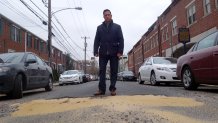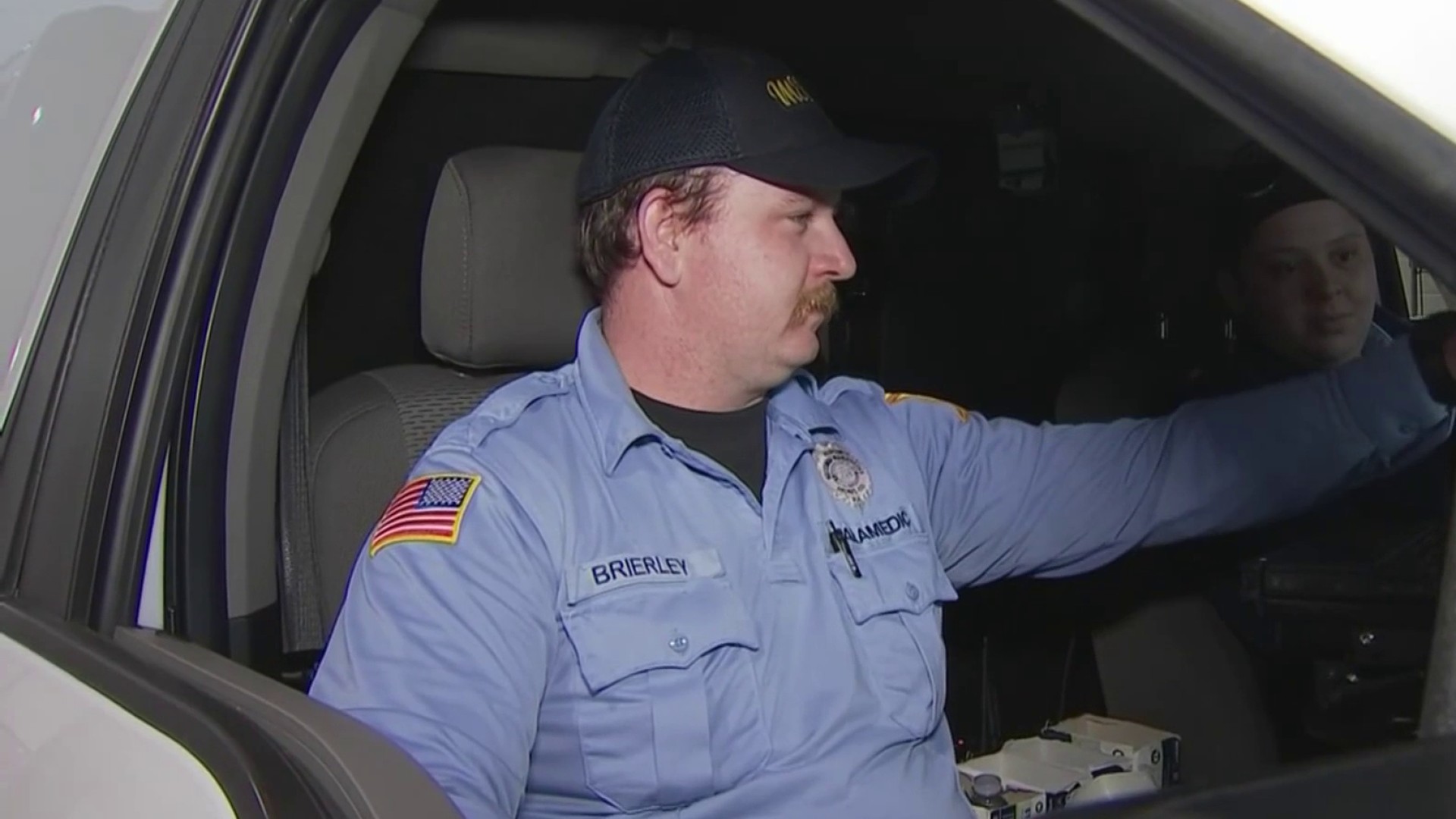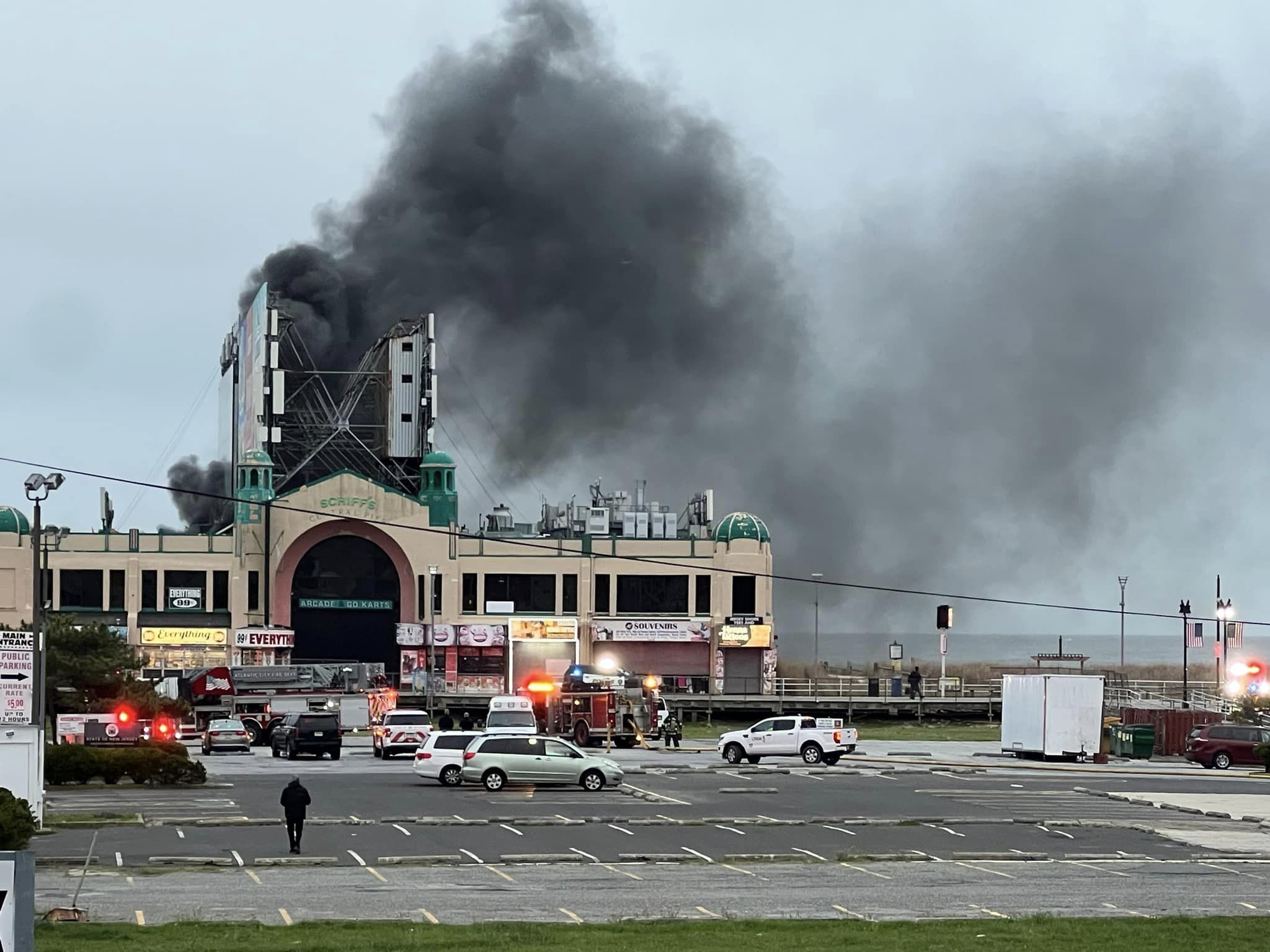At the corner of 4th and Brown Streets, an orchestra of hammers, nail guns and power saws commands the air as contractors ready a trio of four-story, 3,750-square-foot rowhomes for sale.
The same overture can be heard all around Northern Liberties, but this music of progress is often disrupted by another set of noises: the thump of wheels dropping into ditches, undercarriages scraping on asphalt and the cries of frustrated neighbors.
"It's almost like we're building up the neighborhood and we're kind of destroying it at the same time," said resident Sal Acerba.
Standing near a series of poorly-maintained construction ditches, the 48-year-old graphics company vice president is fed up with the state of the streets in his neighborhood.

"It's a safety issue. Everyone rides a bike around here. I can see someone landing headfirst into one of these holes," Acerba said. "And my car ... I already replaced two tires."
A byproduct of the continually accelerating development boom, contractors and utilities cut into the streets to run water, sewer and other lines — buried several feet under the surface — into new homes rising nearby.
Local
Breaking news and the stories that matter to your neighborhood.
The rectangular ditches are meant to be temporary, but often hang around for months and are not properly repaired by workers, neighbors complain. Add other street defects like sinkholes and potholes and the streets more closely resemble a minefield than a thoroughfare.
"I'll drive by and I'll say 'Oh they filled that in' and then in a week or two, it's bigger than it was," the man said.
NBC10 found 10 ditches miring streets in a one city block area between 4th and 5th Streets, Brown Street and Fairmount Avenue. Two of the largest partially-filled holes could be found on the 400 block of Olive Street, which cuts through the center of the block.
"The roads all over this neighborhood are treacherous," said Nancy Nagle before driving her silver Hyundai sedan onto the curb to avoid a ditch nearly the width of the street.
"I just moved my business from South Street over to Liberties Walk hoping that people would be able to get to it and people aren't able to get to it because there's so much construction, there's so many holes," she said. "It's a challenge for people to navigate this little area."
Nagle and her neighbors aren't suffering alone. The Philadelphia Streets Department estimates there are roughly 1,700 open ditches across the city.
Want to feel the thrill of off-roading without heading to the country? Head to the 700 block of South 19th Street in Graduate Hospital. The rumbling ride is not for low-riding coupes.
You'll also be bouncing along South 20th Street near Wharton in Point Breeze and as you drive along Carpenter Street before 9th in Bella Vista.
Still, Northern Liberties seems to be taking the biggest hit.
"I understand that holes need to be dug in the street, but they should be repaired just as soon as they're done working in the street," Acerba said. "Somebody from the city needs to step in and say 'Come on guys, what are we doing here?'"
Who's Responsible?
Maintaining and permanently fixing ditches depends on the work being done and who's doing the job, says Steve Lorenz, Philadelphia's chief highway engineer.
The Streets Department handles the permanent repair of all plumbing work done by both the Philadelphia Water Department and plumbing contractors. Contractors have 30 days to complete the job and then notify the city. The contractors are responsible for keeping it temporarily filled and safe for the next month until Streets workers can do a final fix. If the city hasn't gotten to the problem by then, the agency will assume ownership of the patching work.
Utilities, like PECO, are responsible for repairing their own work and guaranteeing it for five years, Lorenz said.
A ditch could be a nuisance for at least two months, but through the winter and spring, the timeline expands because cold temperatures prevent asphalt from being poured.
"Our goal by the later part of the summer is about 30 days, but between now and July 1, we'll try to get out there within 45 days to do permanent restoration," Lorenz said. "However, that number is based off having a medium winter where we could actually do some street restoration work in the winter time."
This year's frigid winter was not productive.
Further complicating matters are situations where the contractor didn't do their part. Sometimes they fail to notify the city that work is done, Lorenz said.
Or they do a poor job filling in the hole they dug.
Ditches are supposed to be filled with concrete and then have cold patch — a pile of cold asphalt — poured in to level it with the street, Lorenz said. At times, however, just dirt is poured in, which gets washed away with each rainfall, causing trouble for drivers and cyclists.
Even if they're filled properly, there are a lot of ditches to fix and not a lot of people to do it.
There are 18 crews — consisting of four to five people — responsible for permanently repairing them. They're also tasked with dealing with sinkholes, maintaining temporary fill-ins and repairing potholes that formed across the city's 2,525 miles of public streets.
"We gotta work with what we have," Lorenz said adding that he would love more staff. "One ditch at a time. That's the only way to do it."
(Rapid) Growing Pains
Street defects, like construction ditches, are one of the top two reasons residents contact the Northern Liberties Neighborhood Association.
Quality of Life Chair Lara Kelly says since last summer she has been inundated with phone and email complaints related to construction in the neighborhood. "It has been relentless," she said of the construction boom. "There has been little concern for the quality of life of current residents."
"Honestly, I don't think that we saw this coming," Philadelphia City Council President Darrell Clarke tells NBC10. He represents parts of Northern Liberties as well as other hot development spots like Fishtown and Spring Garden.
Construction jobs in February increased by 13 percent in Philadelphia over last year, according to the Bureau of Labor Statistics. New home listings were up 9.2 percent and pending home sales jumped 19 percent, year over year, the Greater Philadelphia Association of Realtors reports.
"There was a sustained period of time when there was literally no construction going on and the market tanked," Clarke said. "And all of the sudden we emerged from the downturn of the economy, the market picks up and we have unprecedented construction happening in the city. We need to adjust to that relatively quickly."
Several years ago, the city instituted a coordinated trenching program where multiple departments and utilities would be notified do underground work at the same time so streets wouldn't continually be tore open, Clarke said. They didn't expect frequent private development to cause similar problems.
The council president believes the city needs to do a better job responding to resident's concerns quickly, without giving them the runaround.
Residents are told to contact 311, the city's call center, to report street issues like construction ditches, but residents complain it doesn't net a quick fix. So they often don't file a formal complaint.
"We'll drive the streets and try to get to as many as possible, but 311 is the best way to get them to us," said Lorenz.
"I don't think that, frankly speaking, 311 is the entity that should be responsible for this because it's primarily construction related and I think that there should be a division that deals solely with construction and permitting activity," Clarke said.
That new entity, called the Division of Development Services, would be part of a new Department of Planning and Development that Clarke is pushing to create. It would consolidate agencies like City Planning, Zoning and Housing and Community Development under one umbrella.
A hotline would also be brought online for residents to call and have their issues addressed, Clarke said.
"That entity would be responsible for going through the hodgepodge of government departments and making sure that they can get to the person in the jurisdiction as it relates to those particular issues," he said.
Clarke is working in City Council and with the Mayor's Office to finalize the legislation by May with hopes of having it show up on the November ballot to make a permanent addition to the city's charter.
Nearly all the problem spots in the one-block area around 4th and Brown Streets were fixed days after NBC10 contacted the city about the problems. They included a trench dug by PECO, water department ditches and several dug by contractors.
Still, it could be months before such a one-stop-shop, like Clarke wants to create, is up and running. Until then, city officials say call 311.
[[295941611, C]]
It's not the answer residents probably want to hear.
"Do we have to go through this," asks Sal Acerba. "Do the neighbors have to go through an almost purgatory before we get to heaven?"
But Olive Street resident Greg Sclight, who has dealt with chronic street issues on his block for the past five years, says this is just part of city life.
"It's an old city that was neglected for a long time. They're trying," he said.
Contact Vince Lattanzio at 610.668.5532, vince.lattanzio@nbcuni.com or follow @VinceLattanzio on Twitter and Facebook.



